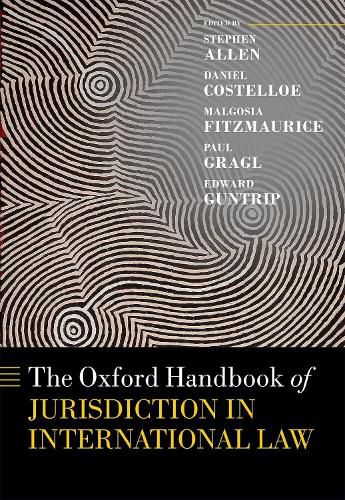Readings Newsletter
Become a Readings Member to make your shopping experience even easier.
Sign in or sign up for free!
You’re not far away from qualifying for FREE standard shipping within Australia
You’ve qualified for FREE standard shipping within Australia
The cart is loading…






The Oxford Handbook of Jurisdiction in International Law provides an authoritative and comprehensive analysis of the concept of jurisdiction in international law. Jurisdiction plays a fundamental role in international law, limiting the exercise of legal authority over international legal subjects. But despite its importance, the concept has remained, until now, underdeveloped. Discussions of jurisdiction in international law regularly refer to classic heads of jurisdiction based on territoriality or nationality, or use the SS Lotus decision of the Permanent Court of International Justice as a starting point. However, traditional understandings of jurisdiction are facing new challenges. Globalization has increased the need for jurisdiction to be applied extraterritorially, non-State forms of law provide new theoretical challenges and intersections between different forms of jurisdiction have become more intricate.This Handbook provides a necessary re-examination of the concept of jurisdiction in international law through a thematic analysis of its history, its contemporary application, and how it needs to adapt to encompass future developments in international law. It examines some of the most contentious elements of jurisdiction by considering how the concept is being applied in specific substantive and institutional settings.
$9.00 standard shipping within Australia
FREE standard shipping within Australia for orders over $100.00
Express & International shipping calculated at checkout
The Oxford Handbook of Jurisdiction in International Law provides an authoritative and comprehensive analysis of the concept of jurisdiction in international law. Jurisdiction plays a fundamental role in international law, limiting the exercise of legal authority over international legal subjects. But despite its importance, the concept has remained, until now, underdeveloped. Discussions of jurisdiction in international law regularly refer to classic heads of jurisdiction based on territoriality or nationality, or use the SS Lotus decision of the Permanent Court of International Justice as a starting point. However, traditional understandings of jurisdiction are facing new challenges. Globalization has increased the need for jurisdiction to be applied extraterritorially, non-State forms of law provide new theoretical challenges and intersections between different forms of jurisdiction have become more intricate.This Handbook provides a necessary re-examination of the concept of jurisdiction in international law through a thematic analysis of its history, its contemporary application, and how it needs to adapt to encompass future developments in international law. It examines some of the most contentious elements of jurisdiction by considering how the concept is being applied in specific substantive and institutional settings.